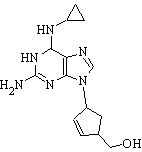About 5% of patients have a potentially serious reaction to abacavir (Ziagen), and must discontinue the drug and never use it again. Now researchers in Australia have reported new data showing that testing for certain genes can accurately predict who will have this reaction.
In their cohort of 248 patients, 18 of whom had the reaction, a genetic test for HLA-B*5701 alone would reduced the risk of abacavir hypersensitivity from 8% to 0.4%--but would result in about 1.6% of their patients being inappropriately denied the drug. Adding a second genetic test would reduce these false positive from 1.5% to 0.4%. These figures will vary by racial groups, or by geographic regions within the same race, because of the different genetic inheritance of different populations.
The researchers presented their findings at the Retroviruses conference (February 8-11, 2004 in San Francisco), and published a full report on March 15. They are now using the testing in their clinical practice, to avoid giving abacavir to patients who are likely to react to it. This testing is not in general use, however.
Incidentally, having HLA-B*5701 is probably an advantage overall, because it is associated with slower HIV progression.
For More Information
For an overview of presentations on this subject at the Retroviruses conference, see "Pharmacogenetics Predict Abacavir (Ziagen) Hypersensitivity" by Deborah Mitchell, published March 1, 2004 on the HIV and Hepatitis site: http://www.hivandhepatitis.com/recent/nrtis/030102d.html
Original paper: Martin AM, Nolan D, Gaudieri S and others. Predisposition to abacavir hypersensitivity conferred by HLA-B*5701 and a haplotypic Hsp70-Hom variant. Proceedings of the National Academy of Sciences, USA. Published online before print, March 15, 2004. Free abstract, and link to full text, available at: http://www.pnas.org/cgi/content/abstract/0307067101v1
COPYRIGHT 2004 John S. James
COPYRIGHT 2004 Gale Group



